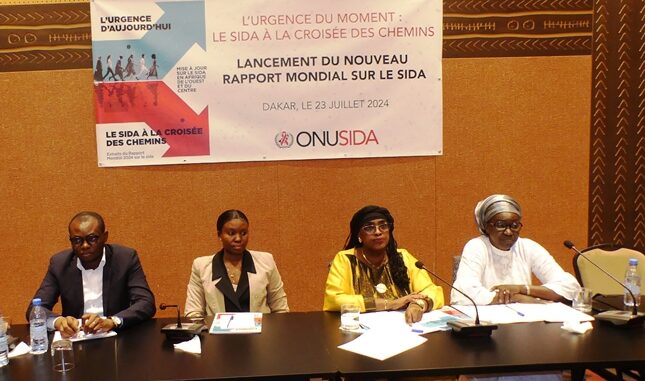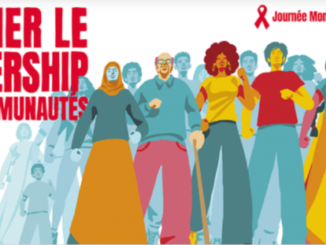
The global update report on AIDS in West and Central Africa was officially launched on Tuesday by Ms. Berthilde Gahongayire (UNAIDS Regional Director for West, Central and North Africa). Several stakeholders in the fight against HIV attended this hybrid meeting which shed light on the progress since 2010, in terms of achieving the objectives and also the challenges to be met.
Overall, the report shows that West and Central Africa has recorded encouraging results, whether in the reduction of new infections or the number of people under treatment. The annual number of new infections decreased by 46% between 2010 and 2023, although it remains high among key populations, adolescent girls and young women who represent 19% of all HIV infections in the region. In terms of deaths due to AIDS, the region recorded a decrease of 55%.
“We have also made enormous progress in access to treatment. The number of adults (aged 15 and older) receiving HIV treatment has more than doubled since 2015. Today, 81% of people living with HIV know their status, 76% of those, are receiving antiretroviral treatment and 70% of those on treatment have a suppressed viral load,” explained Ms. Berthilde Gahongayire (UNAIDS Regional Director for West, Central and North Africa).
She cited Burundi and the DRC as good performers because these two countries are on the verge of achieving the 95-95-95 targets for HIV testing and treatment among their adult populations (15 years and over).
On a legal level, efforts are also underway
Efforts are also underway in several countries to implement legal reforms and combat stigma and discrimination, particularly against key populations. It appears from the latest surveys that 33% of people living in Gabon and 79% of people in Mauritania have discriminatory attitudes towards people living with HIV.
“Moreover, the age of consent for access to HIV testing is still limited in 10 countries in our region, which still require parental or guardian consent for HIV testing for young people under 18 “, she lamented.
Although overall resources dedicated to HIV have decreased, in our region there is a 10% increase in total HIV resources in 2023, mainly due to increased international resources. Unfortunately, domestic resources decreased by 3% in 2023.
Pediatric HIV, an emergency of the moment
The regional director of UNAIDS welcomed donors and called for more investment in the pediatric field because the emergency of the moment is pediatric HIV.
“Pediatric HIV is a top priority in the Region, but only 35% of children living with HIV were receiving treatment in 2023. Additionally, the region is home to 20% of pregnant women living with HIV globally, but more than half of them are not taking antiretroviral treatment,” lamented Ms. Gahongayire.
She called for a combination of strong political commitment, technical expertise and community mobilization, as a human rights-based response is necessary for continued progress towards preventing vertical transmission of HIV: “If we scale up prevention, if we work to eliminate gender inequalities and end HIV-related stigma and discrimination, then we will be on the right path to ending HIV/AIDS as a problem by 2030. public health,” declared the regional director for West, Central and North Africa.
Recall that the global AIDS update report was launched on Monday in Germany. END
From Dakar, Ambroisine MEMEDE



